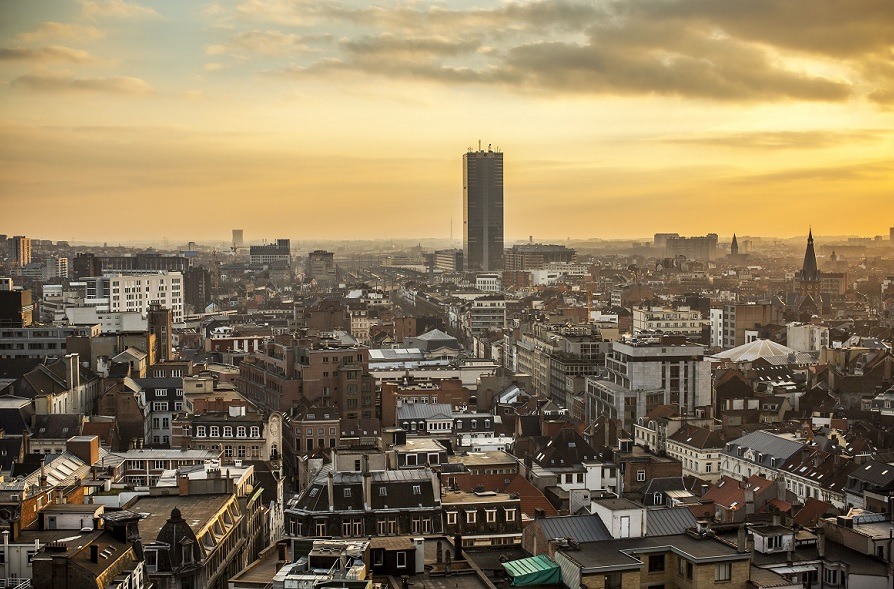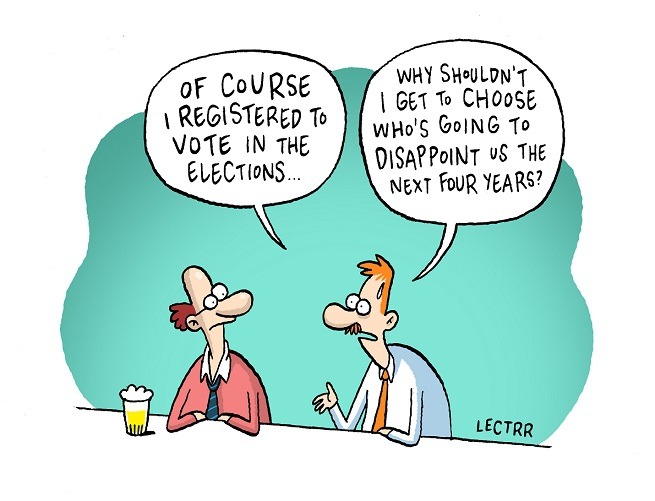What is the best way to keep your commune clean, improve social services or help stop drug dealing in your neighbourhood? One way, maybe less obvious than most, is to vote in the upcoming local elections and elect people who might do something about these and many other issues.
It tends to be overlooked, not least by expats, that local politicians are more powerful in Belgium than many other countries. The problem is that far too few non-Belgians living here choose to use their democratic right to vote.
Ahead of the local elections on 14 October, a huge campaign was organised during the summer to help promote interest in the elections, held only every six years.
Brussels is arguably Europe’s most international city and two thirds of its residents were actually born abroad. The campaign sought to register the 300,000 or so non-Belgians living in the city who are eligible to vote. The idea has been to promote registration with the message being: Make your commune a better place for everyone.
According to the latest figures, 49, 406, non Belgians registered, out of 285,413 who were eligible. This compares with 34,172 foreign voter registrations six years ago. Watermael Boitsfort has the highest rate -26 per cent – with Evere the lowest at just 12.3 per cent.
The statistics are generally impressive but does it matter whether you vote or not?
All European citizens, provided that they have registered, are eligible to vote, including, if necessary, by proxy. Belgium even gives you the right to “de-register” afterwards if you change your mind and decide not to vote. But does it matter if you vote or not?
It certainly does, according to Karin Impens, deputy to Alain Hutchinson, who is Brussels Commissioner for Europe and International Organisations in Brussels-Capital Region. She says that as expats account for approximately 22% of the electorate, rising to more than 50% in certain communes such as St Gilles, “they can make a difference.”
“In most communes, a few hundred votes could change the outcome. By becoming engaged, expats have the opportunity to influence local government,” she told The Brussels Times.
“Communes in Belgium have more powers than local authorities in most European countries and can defend your interests with regard to regional and national authorities. Communes make decisions that directly affect the daily life of their constituents: the development of one’s neighbourhood and its public and green spaces, cleanliness, parking, housing, education, and much more.”
“Furthermore, voting for local elections is a constitutional right,” she adds.
“It’s the fundamental expression of what the EU stands for. Citizenship in one of the EU member states gives every EU citizen the right to vote and stand as candidate in municipal (and European Parliament) elections regardless of whether they are a national of the EU country in which they reside, and this under the same conditions as nationals.”
She points out that her office has worked closely this year together with VoteBrussels, a non-partisan campaign co-funded by the EU, to promote registration and voting.
Engaging the non-Belgian community
Looking beyond this year’s communal elections and to the longer-term, she says, “On a personal note, I think things might really start to change from the moment there will be more expats to stand as candidates. Belgian politics always seemed a bridge too far for non-Belgians. Put more expat candidates on electoral lists and more expats will register to vote.”

With roughly 300,000 eligible non-Belgian voters in Brussels, they have the potential to significantly impact the results of local elections. However, voter turnout has historically remained disappointingly low, with roughly 14% in the last 2012 elections.
Thomas Huddleston, coordinator of the VoteBrussels campaign, has been intimately involved in trying to persuade expats here to get out and vote in this, and other, elections. While it is still hard to estimate the final registration rate for newly registered voters, the campaign can be deemed a real success.
According to figures released before this magazine went to press, 130,000 foreigners have registered, including about 112,000 EU citizens and 18,000 non-EU citizens.
Thomas Huddleston said the city suffers from "one of the largest democratic deficits" in Europe because, despite being the most diverse place in Europe, its communes have some of the lowest voter registration rates in the EU.
Like Karin Impens, he thinks that it’s a myth that voting changes nothing. "Polls suggest major changes could happen in several Brussels communes." He points out that many Belgians and non-Belgians had to "fight long and hard" for the right to vote for all non-Belgians". Only 14 percent of non-Belgians registered for the last election. “Hopefully this time they got the right information in time."
The 60-plus volunteers from VoteBrussels directly reached 2,000 EU citizens through 80 face-to-face events (and 350 hours of conversations) plus another 50,000 each week through Facebook and Twitter. On one day alone, 60 volunteers in 20 European Commission buildings registered 330 EU staff and informed thousands more about the election and their right to vote.
Myths and misinformation
As ever, there is a caveat to the good news. “Information is still the major obstacle. Misinformation about obligatory voting was the main reason reported to volunteers by many of those ‘uninterested’ passers-by,” added Huddleston, who is also a research director at the Migration Policy Group.
Roger Casale is a former Labour MP in the UK who founded New Europeans, a campaign group to protect citizen rights in Europe. He says the fact that, in the past at least, so few non-Belgians vote in local elections in Brussels is “at best a paradox, at worst an embarrassment” for the home of the EU’s main institutions.
“Brussels is Europe’s most cosmopolitan city – in fact after Dubai, it’s the second most cosmopolitan city in the world. 62% of the population of Brussels was born outside Belgium,” he says.
“The EU prides itself on building a Europe of the citizens and European citizenship includes the right to stand and vote in local elections. Not all of Brussels non-Belgian residents are other Europeans by any means, but a lot are – so why don’t they vote in larger numbers?”
There are several possible reasons. Firstly, local elections only take place in Brussels every six years – it’s easy to get out of the habit of voting, he argues. Secondly, while Belgian citizens are automatically entitled to vote, non-Belgians have to register.
Thirdly, there is a widespread belief that you will be fined if you are registered to vote and then fail to do so. There is such a law but it has not been applied since 2004.
Having an impact
Local councils in Brussels have substantial powers which impact directly on the daily lives of citizens. Irish citizen Eve Geddie put it like this in a recent tweet about the local elections: “While I may work in the EU bubble, I have left my kids in the arms of the commune since they were six months old; I’m voting to ensure the quality of their schools, playgrounds and air.”
Italian journalist Maria Laura Franciosi, a long-time resident of Brussels and New Europeans board member said: “I think that running for local election in the country where you live is an excellent idea if you intend to stay and to get involved with local life.”
Despite such enthusiasm, participation, generally, by non-Belgians in the local elections is still remarkably low. “Vote where you live!” may be the slogan of this election but in the central Brussels commune of Ixelles, only 12% of non-Belgian EU citizens were registered to vote in 2012.
This appears to have improved this time around with some 3,894 European citizens in Ixelles registering to vote, making it the commune with most success in the registration promotion. The largest number of non-EU voter registrations was in Schaerbeek (1,846) and the city of Brussels (1,423).
Casale says that a letter was sent by the Brussels region to all non-Belgian residents on 28 June reminding them of the requirement to register. “Some mayors replicated this to reinforce the message but not in all. It seems that the price of a postage stamp is not something every mayor is prepared to pay to make their constituency more inclusive.”
Dr Bertand Wert is a councillor in Ixelles and has been raising the issue with the local administration every two months. But he says that generally he is deeply unhappy with the results.
“It’s disappointing that so many people who work for the ‘EU of the citizens’ fail to set an example by registering and voting in local elections, as they have the right to do by virtue of their EU citizenship.”
As Casale says, “That’s a campaign that needs to start now.”

